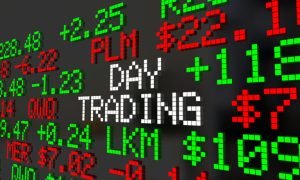A Cyclical Industry is a sector of the economy that experiences significant fluctuations in performance and profitability in line with the overall business cycle. These industries tend to perform well during periods of economic growth and expansion but suffer during periods of economic downturns and recessions. The demand for products and services in cyclical industries is closely tied to the broader economic environment, making these industries highly sensitive to changes in consumer spending, business investment, and economic conditions.
Key Characteristics of a Cyclical Industry:
- Economic Sensitivity:
- Definition: Cyclical industries are highly sensitive to changes in the economy. Their revenues, profits, and stock prices typically rise during economic expansions and fall during recessions.
- Example: The automotive industry is cyclical because car sales increase when consumers feel confident about the economy and decrease during recessions when consumers cut back on big-ticket purchases.
- Examples of Cyclical Industries:
- Automotive Industry: Demand for cars and trucks rises when the economy is strong and consumers have more disposable income, but it falls during economic downturns.
- Construction and Real Estate: These sectors boom during periods of economic growth when companies and individuals invest in new buildings and homes, but they slow down during recessions.
- Travel and Leisure: When the economy is doing well, people are more likely to spend money on vacations, dining out, and entertainment. Conversely, these activities are among the first to be cut back during economic hardship.
- Consumer Electronics: Sales of non-essential electronics, such as smartphones and gaming consoles, tend to increase when consumers have more discretionary income and decrease when they tighten their belts.
- Cyclical Stocks:
- Definition: Stocks of companies within cyclical industries are known as cyclical stocks. These stocks tend to follow the economic cycle, rising during periods of economic expansion and falling during recessions.
- Example: A company like Ford or General Motors, which is heavily reliant on consumer spending on automobiles, would be considered a cyclical stock.
- Investment Considerations:
- Timing: Investing in cyclical industries requires careful timing. Investors may buy cyclical stocks at the beginning of an economic expansion to capitalize on rising demand and sell them as the economy starts to slow down.
- Volatility: Cyclical stocks can be more volatile than non-cyclical (defensive) stocks, as they are more susceptible to economic swings.
- Diversification: To manage risk, investors often diversify their portfolios by including both cyclical and non-cyclical stocks.
- Contrast with Non-Cyclical (Defensive) Industries:
- Non-Cyclical Industries: Also known as defensive industries, these sectors provide essential goods and services that consumers continue to buy regardless of economic conditions. Examples include utilities, healthcare, and consumer staples (e.g., food, household products).
- Example: A company that produces basic necessities, such as Procter & Gamble, which sells products like soap and toothpaste, would be considered part of a non-cyclical industry because its sales are less affected by economic cycles.
- Economic Indicators:
- Leading Indicators: Investors often watch economic indicators, such as GDP growth, consumer confidence, and unemployment rates, to gauge the health of cyclical industries and make informed investment decisions.
- Example: Rising consumer confidence might indicate a strengthening economy, leading to increased spending in cyclical industries like retail and travel.
Summary:
A Cyclical Industry is a sector that experiences significant fluctuations in performance in line with the economic cycle. These industries, such as automotive, construction, and travel, thrive during economic expansions but struggle during recessions. Cyclical stocks tend to be more volatile and sensitive to economic conditions, requiring investors to carefully time their investments. In contrast, non-cyclical industries, or defensive sectors, provide essential goods and services that are less affected by economic downturns. Understanding the nature of cyclical industries is crucial for making informed investment decisions and managing portfolio risk.







